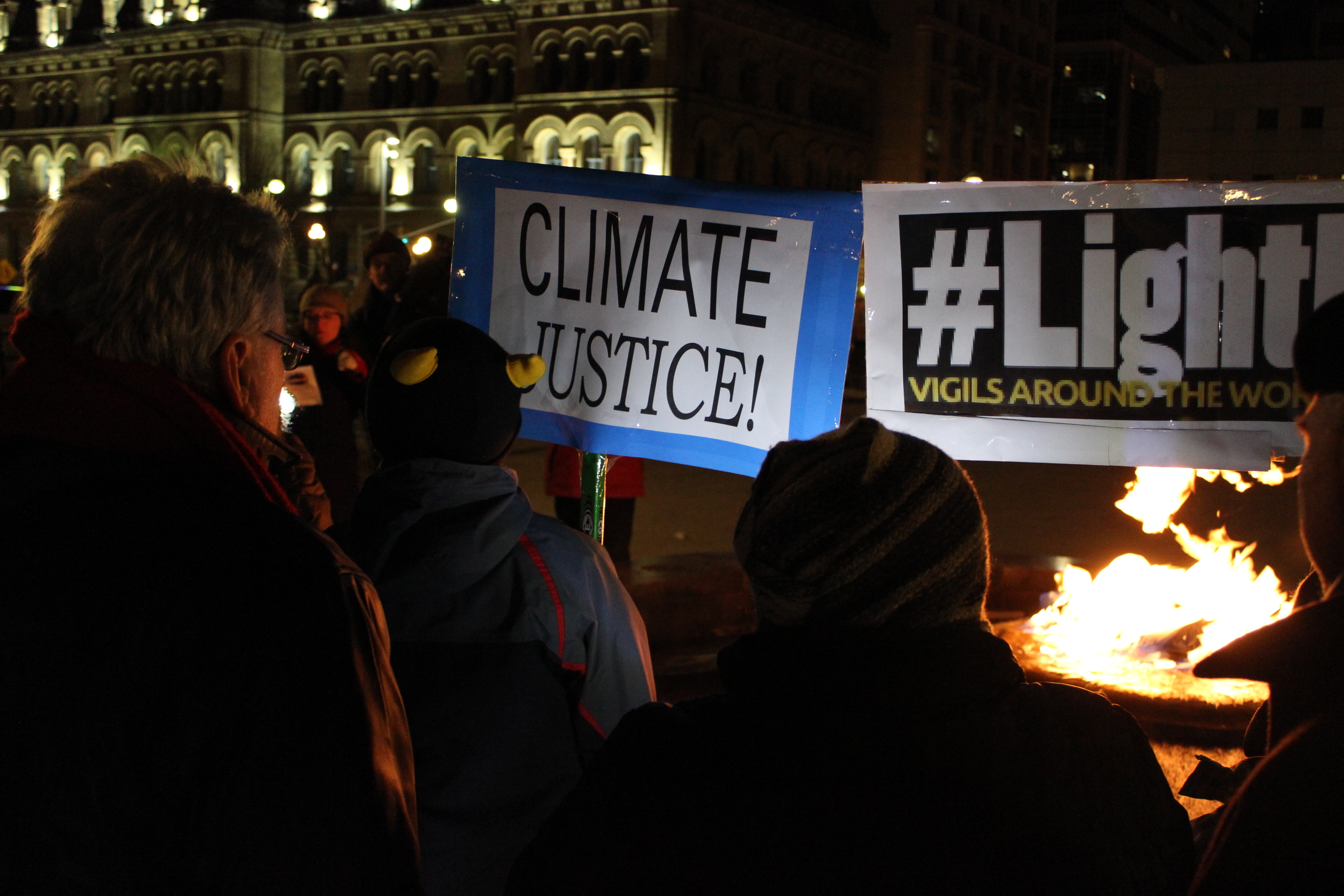Faith groups continue to call for an international agreement that addresses climate change. On December 7, groups in nine Canadian cities held vigils that coincided with the latest round of UN climate change talks in Lima, Peru.
The Ottawa vigil took place in a downtown Lutheran church, where participants heard from representatives of Catholic, Anglican, Lutheran, Jewish, Muslim, Baha’i and Unitarian faith groups. Following a brief program of prayers and song, the group marched in the dark and cold over to Parliament Hill — their way lit by the solar lamps they carried.
Increasingly urgent
The situation is growing increasingly urgent. In April 2014, scientists from the Intergovernmental Panel on Climate Change (IPCC) issued their fourth report, which said more clearly than ever that climate change is occurring as a result of human activity.
Less than a month later, scientists reported that a large section of the West Antarctica ice sheet had begun to disintegrate and its continued melting has likely passed a point of no return. The IPCC earlier warned that global warming could, in turn, cause sea levels to rise by as much as a metre by the end of this century, inundating many of the world’s coastal cities.
Canada an outlier
Responding to the IPCC’s April report, Canadian Environment Minister Leona Aglukkaq claimed that Canada is a world leader in addressing climate change. The Canadian government even says it is committed to cutting emissions by 17 per cent below 2005 levels by 2020. But that simply isn’t true. In fact, a recent Environment Canada report indicates that we won’t even come close.So Canada is an outlier when it comes to climate change — a kind of North Korea, known increasingly for bizarre behaviour. In Lima, Aglukkaq insisted that Canada will not move to regulate emissions from the oil sands, which is this country’s main emitter of greenhouse gases.
Early in December, UN Secretary General Ban Ki-moon singled out Canada for criticism. He said that other countries are making efforts to curb climate change and that Canada should do more. “Canada is an advanced country, you have many ways to make some transformative changes,” he told the CBC.
Environics poll
Writer Naomi Klein says in her new book, This Changes Everything, that when it comes to combating climate change, the impetus will have to come from people and the social movements that they create. A recent Environics poll conducted for the David Suzuki foundation indicates that an increasing majority of Canadians accept that climate change is happening and is caused by human activity. They’re looking to government for leadership, but Environics also says that climate change is not yet a top-of -mind issue and that few people are prepared to pay more for action on the environment.
Faith groups and social movements
Time is, indeed, short. Still, faith groups tend to take a longer, deeper view than most politicians and could begin to play a key role in the very social movements that Naomi Klein describes.
This piece also appeared on my blog with the United Church Observer on December 11, 2014.




